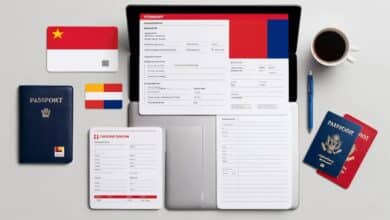Major Benefits and Advantages of Working as a Sponsored Caregiver in Norway
Norway’s healthcare system ranks among the most advanced globally, offering stable employment opportunities for skilled professionals.
With an aging population creating urgent demand for support services, the country welcomes international talent to fill roles in home-based and institutional settings. Structured programs provide clear pathways for qualified individuals to contribute while enjoying legal employment protections.
High living standards and competitive salaries make this European nation a top choice for those seeking meaningful careers. Professionals gain hands-on experience in diverse environments, from private residences to public health centers. The emphasis on work-life balance and employee rights ensures fair treatment across all sectors.
Legal frameworks prioritize transparency, requiring formal job offers and documentation for foreign workers. This approach minimizes risks while fostering trust between employers and employees. Workers also access Norway’s universal healthcare system, adding to the appeal of long-term career development.
For healthcare specialists, these opportunities combine professional growth with cultural immersion. The demand for compassionate, skilled individuals continues to rise, creating a sustainable market for international talent. This section explores how these factors position Norway as a leading destination for global care professionals.
Overview of the Caregiver Visa Sponsorship in Norway
Securing authorization to work in Norway’s healthcare sector involves meeting specific standards set by immigration authorities. Professionals must navigate structured processes designed to verify their credentials and ensure compliance with labor regulations. This system prioritizes qualified candidates who demonstrate both expertise and commitment to high-quality service delivery.
Understanding Eligibility Criteria
To qualify for a skilled worker permit, applicants need formal healthcare education or equivalent vocational training. Employers must be registered entities like municipal agencies or accredited care facilities offering full-time positions. The Norwegian Directorate of Immigration (UDI) mandates minimum salary thresholds, requiring signed contracts before submission.
Required Documentation and Work Experience
Essential materials include:
- Valid passport and employment offer
- Proof of completed education or specialized certifications
- Detailed records of previous roles in caregiving
Authorities also request confirmation of housing arrangements and police clearance certificates. Work experience verification ensures candidates meet practical skill expectations. Applications lacking these elements face delays or rejection, emphasizing the need for thorough preparation.
Advantages of caregiver visa sponsorship in Norway
Structured employment programs in Scandinavia provide foreign workers with exceptional security and growth potential. Those entering through authorized channels receive protections matching local standards, ensuring fairness across all aspects of professional life.
Legal Protections and Employee Benefits
Workers gain access to universal healthcare coverage from their first day of employment. Employers must provide at least 25 paid vacation days annually, along with contributions to national pension plans. Strict regulations enforce safe working conditions and prevent unfair treatment.
Additional advantages include:
- Family reunification options after one year
- Guaranteed minimum pay rates
- Protection against sudden contract termination
Pathway to Permanent Residency
After three years of continuous legal employment, professionals can apply for permanent residency. Requirements include:
- Valid work permits throughout the period
- Proof of stable income above threshold levels
- Completion of language and social studies courses
Successful applicants enjoy unrestricted work rights and eligibility for citizenship after seven years. This system rewards committed individuals seeking long-term stability in Europe’s progressive north.
Step-by-Step Application Guide for Aspiring Caregivers
Navigating Norway’s work authorization system requires precision and attention to detail. Aspiring professionals must follow a structured approach to ensure their submissions align with legal requirements. Preparation and timely communication significantly influence success rates.
Preparing Your Application Materials
Start by gathering these essentials:
- A valid passport with at least six months’ validity
- Original employment contract from a registered employer
- Educational certificates translated into Norwegian or English
Applicants must meet specific criteria, including proof of relevant qualifications. Missing documents rank among the top reasons for delayed processing. Secure authenticated copies of police clearance certificates and housing confirmations early.
Submission and Follow-Up Process
Submit completed applications through the UDI online portal or nearest diplomatic mission. Processing time typically spans 2-4 months but may extend for vocational roles due to verification complexities. Track progress using your case number and respond promptly to additional requests.
“Complete applications reduce review delays by 40% compared to incomplete submissions,” notes a UDI efficiency report.
After submission, employers often assist with follow-ups. Maintain open communication channels and prepare for potential interviews. Successful candidates receive residence permit approvals via email with further entry instructions.
Exploring In-Demand Caregiver Roles in Norway
Professionals entering Norway’s care sector find diverse opportunities tailored to various skill sets. High-demand roles range from home-based support to clinical specialties, each addressing critical needs within communities. Employers actively seek candidates who combine technical expertise with compassionate service delivery.
Live-in Care Roles and Home Health Assistants
Round-the-clock support positions help individuals maintain independence while receiving medical supervision. These roles often involve managing chronic conditions, mobility assistance, and medication administration. Organizations like Trinity Homecare offer competitive packages including lodging and skill development programs.
Key responsibilities include:
- Personal care services for elderly clients
- Disability support coordination
- Post-surgical recovery monitoring
Home health assistants frequently collaborate with registered nurses to implement care plans. This teamwork ensures clients receive holistic support tailored to their needs.
Specialized Care Positions in Urban and Rural Areas
Urban centers typically require professionals skilled in mental health interventions and pediatric care. Rural regions often prioritize generalist roles due to limited access to large medical facilities. Both settings value adaptability and crisis management abilities.
Demand varies by location:
- Cities seek psychiatric aides and rehabilitation specialists
- Smaller towns need multipurpose assistants for aging populations
Qualifications differ across roles. Pediatric positions may require child development certifications, while geriatric roles often prioritize experience with dementia care. Matching credentials to employer expectations improves job placement success.
Training, Qualifications, and Work Experience Requirements
Meeting professional standards for healthcare roles demands a precise combination of education and hands-on practice. Three primary pathways exist: completing vocational programs, holding university degrees, or demonstrating extensive field experience. Each route requires thorough documentation to prove equivalence with local requirements.
Vocational Training and Professional Certifications
Formal vocational programs must span at least three years at upper secondary level. These courses should align with Norwegian curricula in subjects like patient care or medical assistance. University degrees in nursing or social work often meet qualification thresholds when accompanied by official transcripts.
Certifications from recognized institutions strengthen applications significantly. Many employers value ongoing training in specialized areas such as dementia care or emergency response. Updated credentials demonstrate commitment to professional growth, increasing employability in competitive markets.
Accumulating Relevant Work Experience
Six years of full-time practice can substitute for formal education in exceptional cases. Detailed employment certificates must show progressive responsibilities and skill development. Supervisors should describe specific tasks performed, like medication management or mobility support.
Authorities scrutinize documents from regions with histories of fraudulent claims. Notarized translations and employer verification letters help validate foreign records. A UDI representative states: “Complete experience portfolios reduce review delays by 30% compared to vague summaries.”
Understanding Working Conditions and Salary Expectations
Healthcare professionals in Scandinavian countries enjoy compensation packages reflecting their specialized skills. Salaries vary by role and location but consistently meet strict national standards for fair pay. This balance between competitive earnings and worker protections creates attractive employment opportunities.
Salary Benchmarks and Employment Benefits
Monthly earnings typically range from NOK 30,000 to 36,500 based on expertise. Specialized roles command higher pay:
- Disability support workers: NOK 34,000
- Palliative care specialists: NOK 36,500
- Mental health aides: NOK 35,000
Employers often supplement income with housing support and pension plans. Full health coverage begins immediately upon employment. These benefits help offset living costs while ensuring long-term financial security.
Work Hours, Contracts, and Job Security
Standard contracts guarantee 37.5-hour workweeks with overtime compensation. Norwegian law requires written agreements detailing responsibilities and termination policies. Most positions offer permanent employment after probation periods.
Key protections include:
- Minimum 25 paid vacation days annually
- Parental leave entitlements
- Protected sick leave allowances
“Our labor laws ensure equal treatment for all workers regardless of origin,” states a Norwegian Labour Inspection Authority report.
Regional differences exist, with urban centers offering slightly higher pay. However, rural areas often provide additional housing subsidies. Professionals can negotiate terms during hiring while maintaining core legal protections.
Language Proficiency and Integration Tips
Effective communication forms the backbone of quality care, making language skills essential for integration. While English suffices in some settings, professionals must learn Norwegian to build trust with patients and colleagues. Daily tasks like explaining treatments or understanding medical histories demand linguistic precision.
Mandatory proficiency levels apply for permanent residency after three years of work. Many employers cover training costs as part of integration support. Municipal programs often combine language lessons with cultural orientation, helping workers adapt faster.
Enrollment in Norwegian Language Courses
Structured programs target healthcare vocabulary and patient interaction scenarios. Popular options include:
- Online modules with flexible schedules
- Evening classes at community centers
- Workplace tutoring sessions
Professionals with full-time roles can use mobile apps during breaks to practice pronunciation. Consistent daily practice accelerates fluency more effectively than weekly intensive study, according to language researchers.
Local libraries often provide free conversation groups and children’s books for family learning. These resources help workers engage with communities beyond their jobs. Over time, language mastery opens doors to advanced roles and leadership positions.
“Workers who complete 300 hours of training within two years achieve 60% faster promotion rates,” states a Nordic Language Institute report.
Navigating Employer Partnerships and Securing Job Offers
Building relationships with healthcare organizations requires strategic planning and awareness of local hiring practices. Professionals seeking roles must connect with registered entities like municipal health services or accredited residential facilities. These employers follow strict guidelines to ensure candidates meet skilled worker standards while filling critical staffing needs.
Establishing Professional Connections
Start by researching organizations authorized to hire international workers. Attend virtual job fairs hosted by agencies like NAV (Norwegian Labour and Welfare Administration) or industry-specific events. Direct outreach to human resource managers often yields faster results than generic applications.
Key steps include:
- Verifying employer registration status through official databases
- Tailoring resumes to highlight skills matching Norwegian care standards
- Requesting referrals from alumni networks or professional associations
Trinity Homecare exemplifies successful partnerships, offering training programs and housing support. A representative notes:
“We prioritize candidates who demonstrate cultural adaptability alongside technical expertise.”
Job offers must specify full-time hours (minimum 80%) and salary meeting UDI thresholds. Negotiate terms ensuring compliance with immigration requirements while addressing personal career goals. Private families hiring personal support workers must provide financial stability proof and employment contracts.
Planning for Permanent Residency and Long-Term Career Growth
Establishing roots in Scandinavia’s healthcare sector offers professionals stability and upward mobility. Meeting residency criteria unlocks access to broader opportunities while securing a future in this progressive region. Strategic planning helps workers transition from temporary roles to advanced positions with lasting impact.
Permanent Residency Requirements and Timelines
After completing a 36-month period of legal employment, individuals can apply permanent status. Key conditions include:
- Valid work permits maintained throughout the three years
- Documented income exceeding national thresholds
- Completion of 550 hours in language and social studies courses
Approved applicants gain flexibility to switch employers or pursue education. Submitting applications early avoids processing delays during peak seasons.
Opportunities for Career Advancement
Many professionals transition into nursing roles through part-time degree programs. Others become healthcare coordinators by earning certifications in management or specialized care. Leadership positions often require:
- Advanced training in gerontology or palliative care
- Proven experience mentoring junior staff
- Fluency in Norwegian for patient communication
Employers increasingly fund continuing education to retain skilled teams. A recent industry report states:
“Workers updating their qualifications every five years see 50% faster promotion rates.”
Conclusion
For healthcare professionals seeking meaningful roles abroad, structured programs in progressive nations combine career development with exceptional quality of life. Aging populations create consistent demand for skilled workers, offering stable jobs with clear growth trajectories. Competitive salaries and workplace protections make these positions attractive for long-term career planning.
Legal frameworks ensure fair treatment across all employment stages. Workers gain access to universal health coverage and retirement plans while contributing to vital support systems. The pathway to permanent residency rewards those committed to building expertise over time.
These opportunities allow professionals to enhance their experience while making tangible impacts on communities. With focused preparation and cultural adaptability, international candidates can secure rewarding roles in high-demand sectors. The blend of professional fulfillment and social stability makes this career path a compelling choice for ambitious individuals.
Now is the ideal moment to explore how these programs align with personal and professional goals. Those ready to invest time in meeting requirements will find doors open to life-changing work experiences.
For more information, explore the step-by-step guide from the visa mentioned in this article:
You will remain on the current site
FAQ
What qualifications are needed to work in caregiving roles in Norway?
Applicants typically need vocational training or certifications in healthcare, nursing, or related fields. Some positions require proof of prior work experience, especially for specialized roles. Employers may also request language proficiency in Norwegian or English.
How long does it take to obtain permanent residency through employment?
After three consecutive years of legal employment, individuals may apply for permanent residency. Meeting language requirements and adhering to local regulations during this period is essential for approval.
Are there language courses available for foreign workers?
Yes, many municipalities and institutions offer subsidized Norwegian language programs. Enrolling in these courses helps improve integration and meets residency application criteria.
What salary can one expect in home health assistant roles?
Salaries vary by region and employer but generally align with national standards for healthcare workers. Full-time positions often include benefits like paid leave, health insurance, and pension contributions.
Can employers assist with the employment permit process?
Employers registered with the Norwegian Directorate of Immigration (UDI) can sponsor skilled workers. They must provide a valid job offer and ensure the role meets local labor market requirements.
Is prior experience mandatory for entry-level positions?
While some roles accept candidates with vocational training, others require documented experience. Internships or part-time roles in healthcare settings can strengthen applications for competitive positions.
What types of caregiving jobs are in high demand?
Urban centers seek specialists in elderly care and pediatric support, while rural areas often need general health assistants. Live-in roles and crisis support positions also see steady recruitment.
How does contract duration affect job security?
Permanent contracts offer greater stability, though temporary assignments may lead to extended opportunities. Workers should review terms related to hours, termination policies, and renewal options.
Are vocational credentials from other countries recognized?
Foreign certifications must often be validated by the Norwegian Directorate for Higher Education and Skills (HK-dir). Additional training or exams might be required depending on the profession.
What steps follow after receiving a job offer?
Candidates must submit a permit application through UDI, including proof of employment, qualifications, and financial stability. Processing times vary, so early submission is recommended.
Published on: 4 de July de 2025







